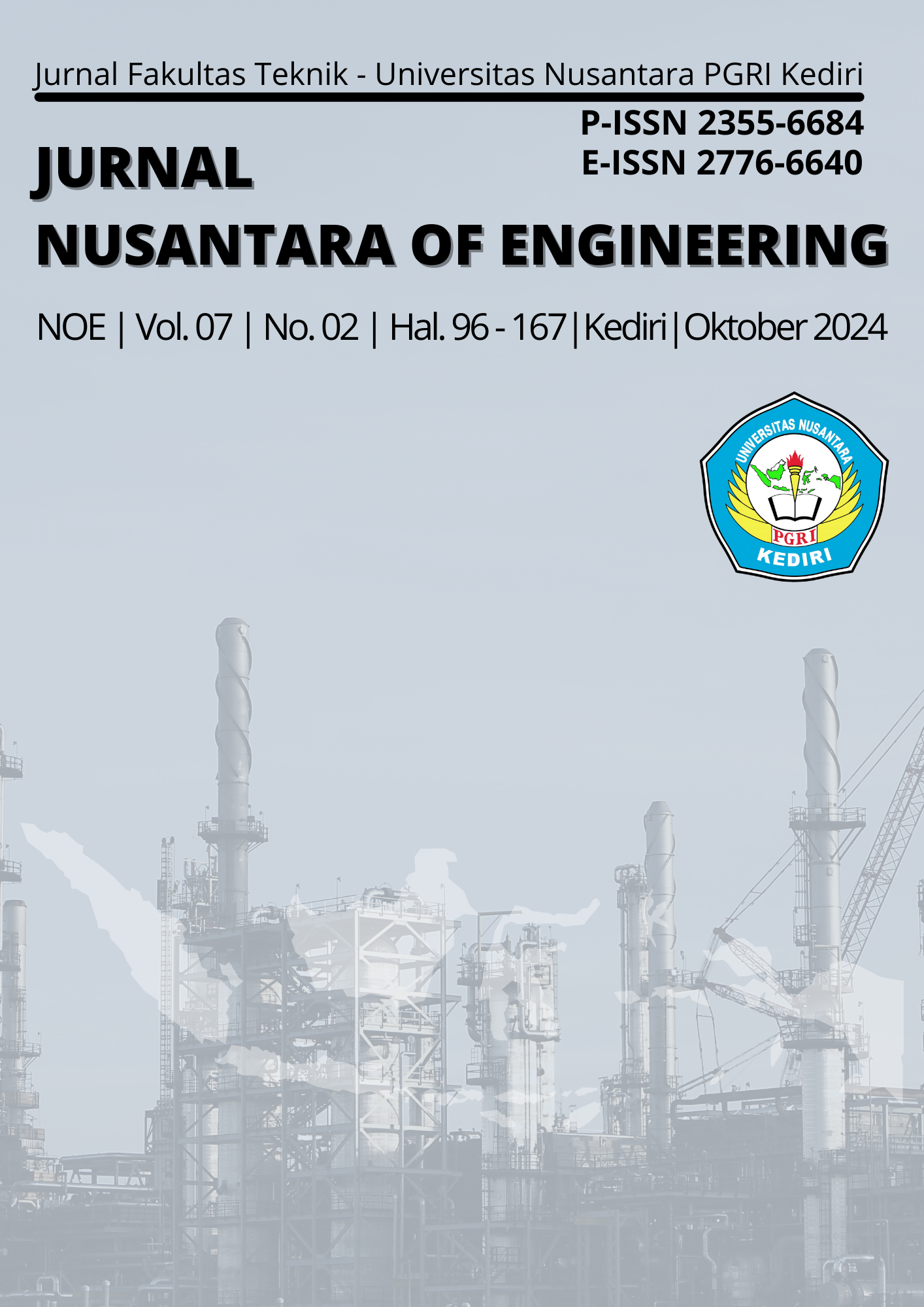PLANNING PRODUCTION COST REDUCTION FOR AMINO ACIDS USING SWOT AND TOWS ANALYSIS AT PT. ABC
DOI:
https://doi.org/10.29407/noe.v7i02.22902Keywords:
Amino Add, SWOT, TOWS, IFAS, EFASAbstract
Amino acids are chemicals needed by living beings to develop because they are the main components of protein compounds. PT. ABC, one of the largest amino acid producers in Indonesia and the longest-established in Southeast Asia, is a factory with extensive experience in amino acid production. PT. ABC, a chemical manufacturing company whose products are used in various industries, requires an appropriate strategy amid tight business competition. The aim of this study is to provide recommendations for strategies to reduce production costs to enhance PT. ABC's competitiveness. The research method uses a descriptive SWOT analysis method with IFAS and EFAS matrices. In the 9-quadrant SWOT analysis, PT. ABC is positioned in Quadrant I (concentration through vertical integration) with a score of 3.19 (IFAS) and 3.14 (EFAS), indicating that the company is in very healthy condition. Meanwhile, in the 4-quadrant diagram, PT. ABC is positioned in Quadrant I, meaning the situation is advantageous for the company, possessing opportunities and strengths to exploit these opportunities. Then, a TOWS matrix was created based on the conducted SWOT analysis. In the TOWS analysis, mapping of Strength-Opportunity, Strength-Threats, Weakness-Opportunity, Weakness-Threats was conducted. Strategies were then formulated to reduce production costs by leveraging opportunities into strengths, turning threats into company strengths, transforming weaknesses into company opportunities, and managing threats and weaknesses to find solutions for reducing production costs.
Downloads
References
Anggraeni, L., Lubis, N., & Junaedi, E. C. (2021). Review: Pengaruh Konsentrasi Garam Terhadap Produk Fermentasi Sayuran. Jurnal Sains dan Kesehatan, 3(6), 891–899. https://doi.org/10.25026/jsk.v3i6.459
Arini, L. D. D. (2017). Pemanfaatan Bakteri Baik dalam Pembuatan Makanan Fermentasi yang Bermanfaat untuk Kesehatan. Biomedika, 10(1), 1–11. https://doi.org/10.31001/biomedika.v10i1.218
Arifudin, O., Tanjung, R., & Sofyan, Y. (2020). Manajemen Strategik Teori Dan Imlementasi. Manajemen Strategik Teori Dan Imlementasi, 177.
Bissell, G. (2017). Management strategies: In Organisational behaviour for social work (hal. 119–126). https://doi.org/10.2307/j.ctt1t891zp.14
David, F. R., David, F. R., Columbus, B., New, I., San, Y., Cape, F. A., Dubai, T., Madrid, L., Munich, M., Montréal, P., Delhi, T., São, M. C., Sydney, P., Kong, H., Singapore, S., & Tokyo, T. (2017). Sixteenth edition StRategic ManageMent concepts and cases. In Pearson education, inc. www.pearsoned.com/permissions/.
Maity, R., Sudhakar, K., Abdul Razak, A., Karthick, A., & Barbulescu, D. (2023). Agrivoltaic: A Strategic Assessment Using SWOT and TOWS Matrix. Energies, 16(8), 1–18. https://doi.org/10.3390/en16083313
Mangiring Siburian, A. (2020). IMPLEMENTASI ANALISIS SWOT DALAM PERENCANAAN STRATEGI BERSAING PERUSAHAAN MANUFAKTUR KIMIA (Studi Kasus Pada PT. ABC). Jurnal Ilmu Manajemen Terapan, 1(4), 372–384. https://doi.org/10.31933/jimt.v1i4.189
Lopolito, A., Nardone, G., Prosperi, M., Sisto, R., & Stasi, A. (2011). Modeling the bio-refinery industry in rural areas: A participatory approach for policy options comparison. Ecological Economics, 72, 18–27. https://doi.org/10.1016/j.ecolecon.2011.09.010
Parrangan, E. (2015). Analisis Strategi Perusahaan Dalam Ekspansi Pasar Luar Negeri. Jurnal Administrasi Bisnis, 26(2), 86276.
Strategi, A., Menggunakan, B., Analyse, S., Pt, P., & Ep, P. (2021). Research Business and Economics Studies. 1(1), 53–61.
Downloads
Published
Issue
Section
License
Authors who publish with this journal agree to the following terms:
- Copyright on any article is retained by the author(s).
- The author grants the journal, right of first publication with the work simultaneously licensed under a Creative Commons Attribution License that allows others to share the work with an acknowledgment of the work’s authorship and initial publication in this journal.
- Authors are able to enter into separate, additional contractual arrangements for the non-exclusive distribution of the journal’s published version of the work (e.g., post it to an institutional repository or publish it in a book), with an acknowledgment of its initial publication in this journal.
- Authors are permitted and encouraged to post their work online (e.g., in institutional repositories or on their website) prior to and during the submission process, as it can lead to productive exchanges, as well as earlier and greater citation of published work.
- The article and any associated published material is distributed under the Creative Commons Attribution-ShareAlike 4.0 International License








